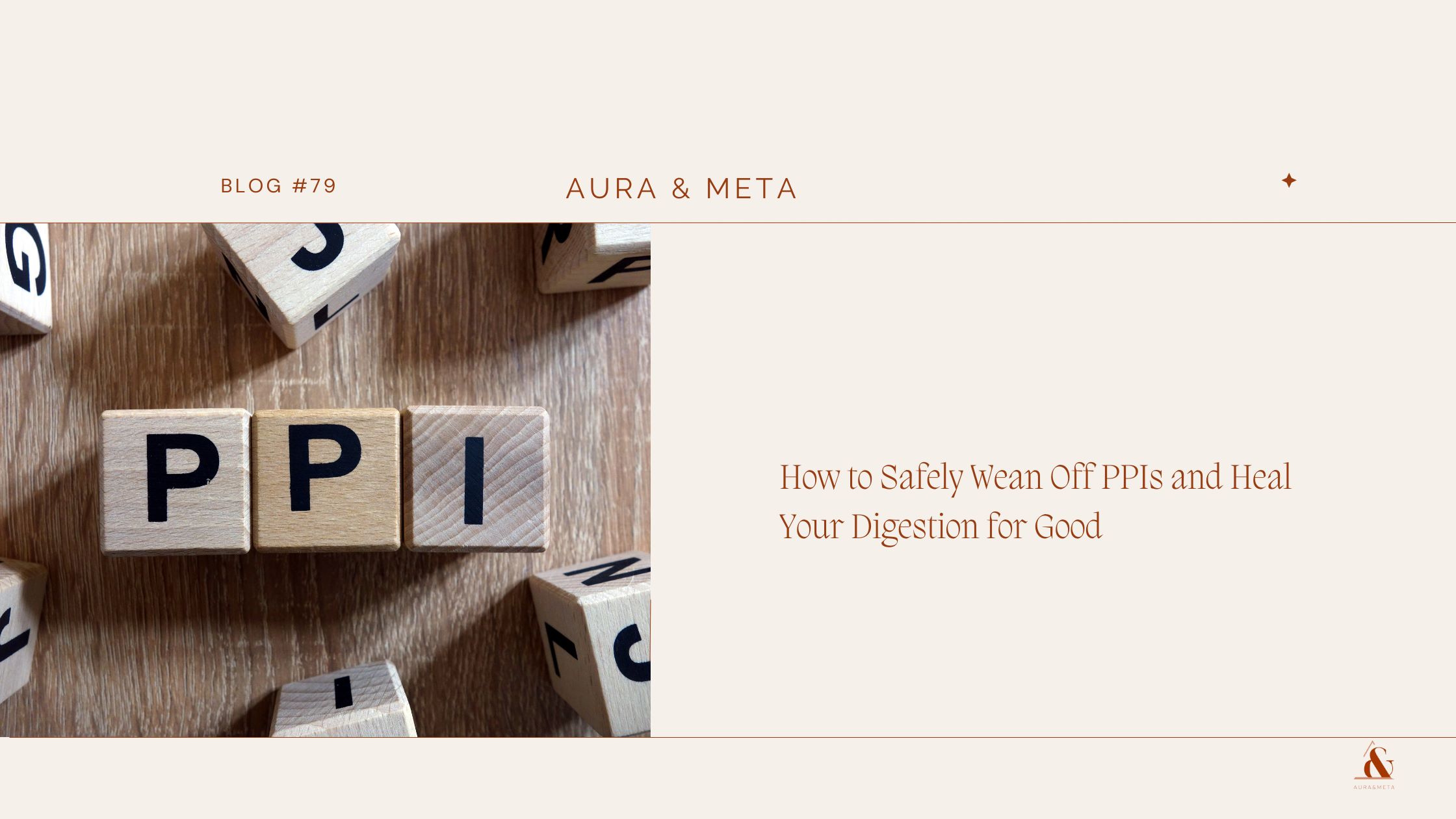I’ve worked with so many people who have been on proton pump inhibitors (PPIs) like omeprazole, lansoprazole, or esomeprazole for months—or even years—without true relief. They’re still struggling with bloating, discomfort, and acid reflux, even though they were told these medications would fix the problem. Studies show that more than 20% of the UK population regularly uses PPIs, yet most people aren’t told about the risks of long-term use.
The reality is that PPIs don’t treat the root cause. They simply suppress stomach acid, which may provide temporary relief but can create more problems in the long run. If you’ve been relying on PPIs and still don’t feel better, I want to walk you through why long-term use can be harmful—and, most importantly, how to safely transition off them while healing your digestion naturally.
Is Weaning Off PPIs Right for Everyone?
While many people can safely reduce or eliminate their PPI use with the right approach, there are certain conditions where long-term PPI use may still be necessary. If you have Barrett’s oesophagus, a history of severe esophagitis, bleeding ulcers, or Zollinger-Ellison syndrome, stopping PPIs could increase the risk of serious complications.
This is why I always emphasize a personalized approach—what works for one person may not be safe for another. If you have a medical condition that requires acid suppression, it’s important to work closely with your doctor before making any changes. For others who have been on PPIs for years without understanding the risks, there may be a better way to restore digestion naturally.
Why PPIs Can Do More Harm Than Good Over Time
At first, PPIs seem like the perfect solution—they reduce stomach acid, which in theory should stop heartburn and discomfort. But here’s the truth:
Stomach acid is essential. It helps break down food, absorb nutrients, and protect the gut from harmful bacteria. When we block stomach acid for too long, we weaken digestion and create new problems.
Long-term PPI use is linked to:




PPIs don’t address why reflux is happening in the first place. And as digestion weakens, many people find themselves dependent on PPIs just to feel okay.
But there’s a better way. Instead of relying on medication, we can strengthen digestion naturally and allow your body to heal.
How to Safely Wean Off PPIs & Restore Digestion Naturally
Weaning off PPIs isn’t about stopping suddenly—that can cause rebound acid hypersecretion, where stomach acid surges back stronger than before. Instead, the goal is to support digestion, improve stomach acid function, and heal the gut lining step by step.
1. Eat Mindfully & Slow Down
How you eat is just as important as what you eat. Rushed, distracted eating puts the body in a stress state, which slows digestion and increases reflux.
Here’s what I recommend:



Making these small changes immediately improves digestion and reduces reflux.
2. Support Stomach Acid Production Naturally
One of the biggest misconceptions about reflux is that it’s caused by too much stomach acid. Many people have too little stomach acid, which leads to food fermenting in the stomach and causing reflux.
To support natural stomach acid levels, I recommend:


Gradually introducing these foods can help restore stomach acid function naturally without medication.
3. Reduce Stress & Support the Gut-Brain Connection
Stress is a huge trigger for reflux. When we’re in fight-or-flight mode, digestion slows down, making reflux worse.
To calm the nervous system and improve digestion, I recommend:



Simple stress-management techniques make a massive difference in reducing reflux naturally.
4. Heal the Gut Lining with a Food-First Approach
Long-term PPI use can irritate the gut lining, leading to more digestive issues. Focusing on a food-first approach to healing may be the answer.
Some of my favourite gut-healing foods include:




A whole-food, anti-inflammatory diet helps reduce irritation and rebuild digestive strength over time.
5. Improve Gut Motility to Prevent Reflux
When food sits too long in the stomach, it can push against the lower oesophageal sphincter (LES), triggering reflux. To keep digestion moving smoothly:



Improving gut motility prevents food from lingering in the stomach too long, reducing reflux naturally.
6. Identify & Remove Trigger Foods
Some foods weaken the LES or increase inflammation, making reflux worse. While everyone’s triggers are different, common ones include:



Instead, focusing on whole, nutrient-dense foods allows digestion to function properly again.
And if this blog resonated with you, please share it with someone who needs to hear this. There is a better way to heal!

